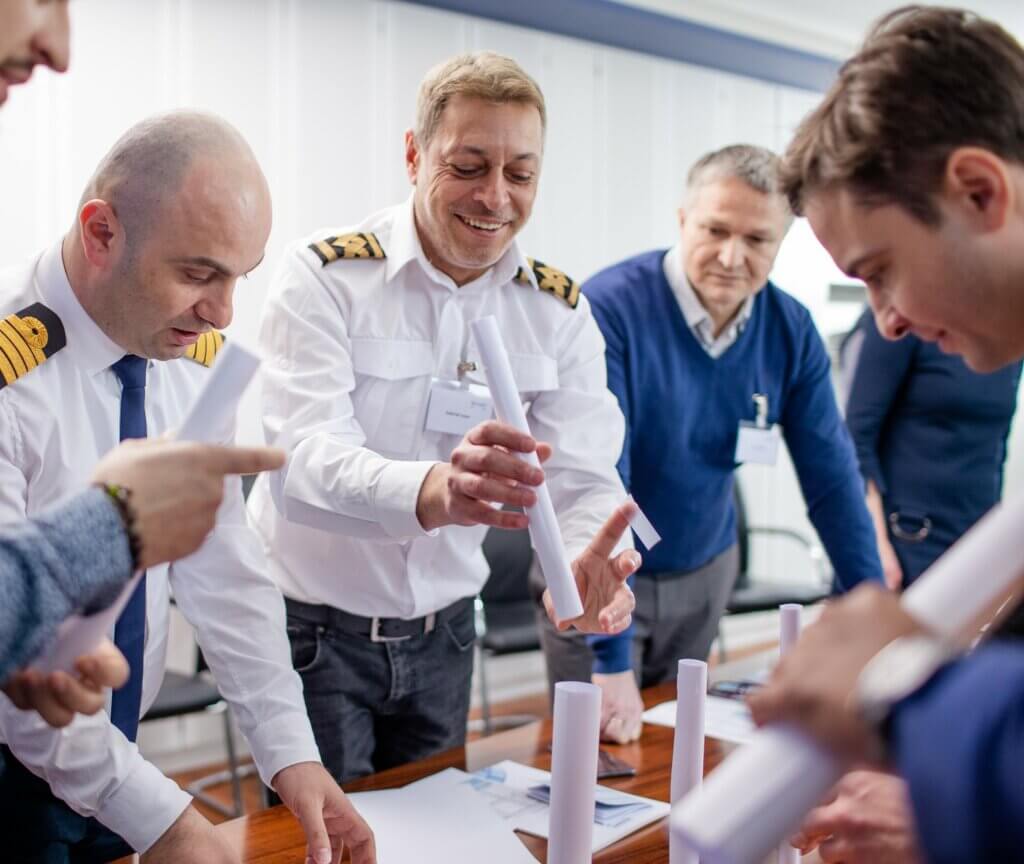OUR OFFERS
In-Person Training
Our in-person training sessions empower maritime professionals to build strong leadership skills, foster better communication, and navigate diverse team dynamics.
With a focus on practical strategies and real-world application, these sessions help leaders and teams tackle current challenges and drive future success.
Elevate the management capabilities of your crew and enhance team efficiency with our expert-led training, designed for immediate impact and long-term growth.

The Instructors

Lead Instructor
Buxtehude
“It's all about decision-making.”

Maritime Instructor
Sailed as Chief Officer
Buxtehude

Technical Trainer NSB in Manila
Sailed as 2nd Engineer
Manila
“To elevate the training standards and foster excellence in the quality of skills and abilities within maritime.”

Tailor-made training sessions and carefree services
On request we can create custom training concepts tailored to your specific challenges and need.
Additionally we offer carefree services like pick-up service, welcome packages and lunch.